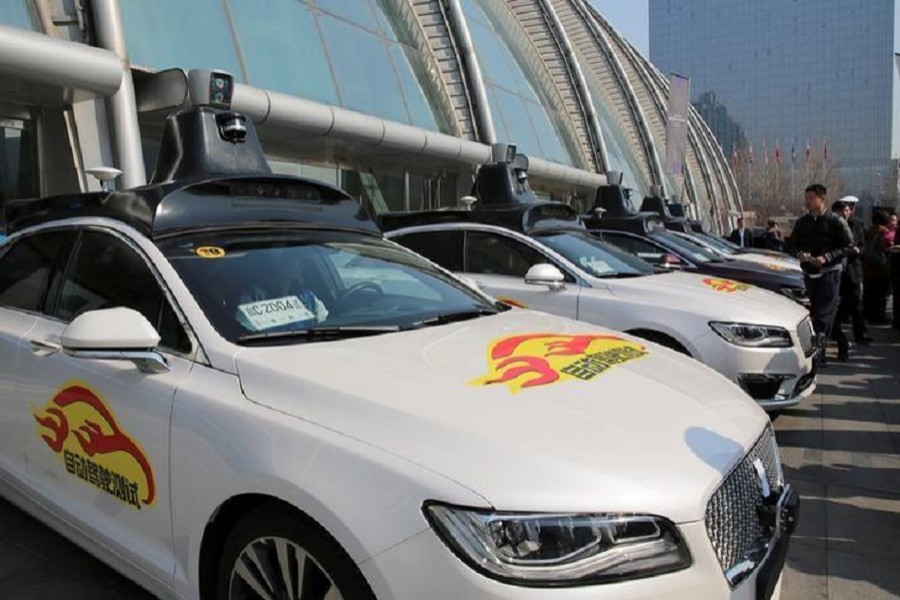A Baidu's Apollo autonomous car is seen during a public road test for self-driving vehicles in Beijing, China March 22, 2018. Reuters
China’s capital city has given the green light to tech giant Baidu Inc to test self-driving cars on city streets, an important step as the country looks to bolster its position in the global race for autonomous vehicles.
The move points to strong support in China for autonomous vehicles even as the global industry reels from a fatal accident involving an Uber self-driving car in the United States earlier this month.
The accident in Tempe, Arizona was the first death attributed to a self-driving car operating in autonomous mode, and has ramped up pressure on the industry to prove its software and sensors are safe.
Beijing has given Baidu, best known as China’s version of search engine Google, a permit to test its autonomous vehicles on 33 roads spanning around 105 kilometers (65 miles) in the city’s less-populated suburbs, the firm said in a statement.
Baidu is leading China’s push in driverless technology, with Beijing keen to keep up with global rivals such as Waymo, the self-driving arm of Google parent Alphabet and Tesla. It has a major self-driving project called Apollo.
“With supportive policies, we believe that Beijing will become a rising hub for the autonomous driving industry,” Baidu Vice-President Zhao Cheng said in the statement.
China issued licenses to auto makers allowing self-driving vehicles to be road tested in Shanghai earlier this month, which included Shanghai-based SAIC Motor Corp Ltd and electric vehicle start-up NIO.
Regulations in the sector are, however, still catching up with fast growth and increasing numbers of firms wanting to carry out tests on public roads.
Baidu Chief Executive Robin Li tested his firm’s driverless car on Beijing’s roads last July, stirring controversy as there were no rules for such a test at the time. The firm hopes to get self-driving cars onto the roads in China by 2019.
According to Reuters, Baidu said that before conducting tests on public roads, autonomous vehicles using its Apollo system would go through simulation tests as well as trials on closed courses.
“This is to ensure the vehicles’ safety and stability to the greatest extent possible,” the firm said.
The push toward autonomous cars, which could shake up the global auto market, has long prompted debate over whether self-driving cars can be trusted. Regulations also differ widely globally and even in different regions in the United States.
In September last year Baidu announced a $1.5 billion autonomous driving fund, with plans to invest in 100 autonomous driving projects over the next three years.


